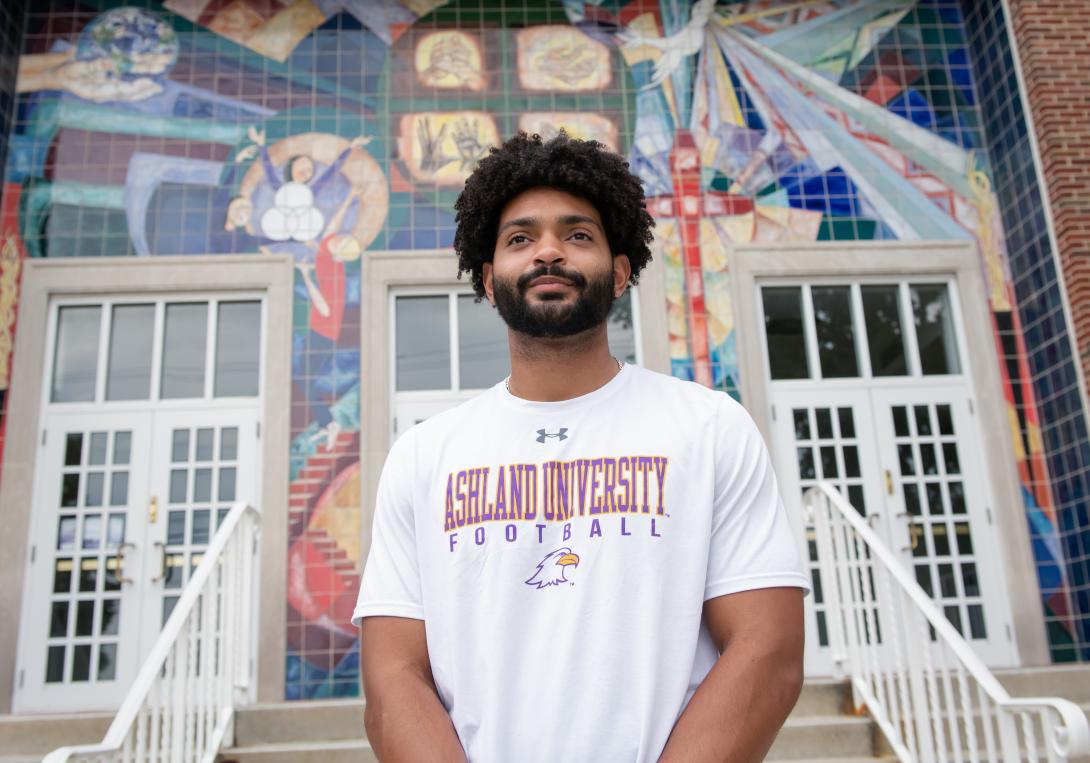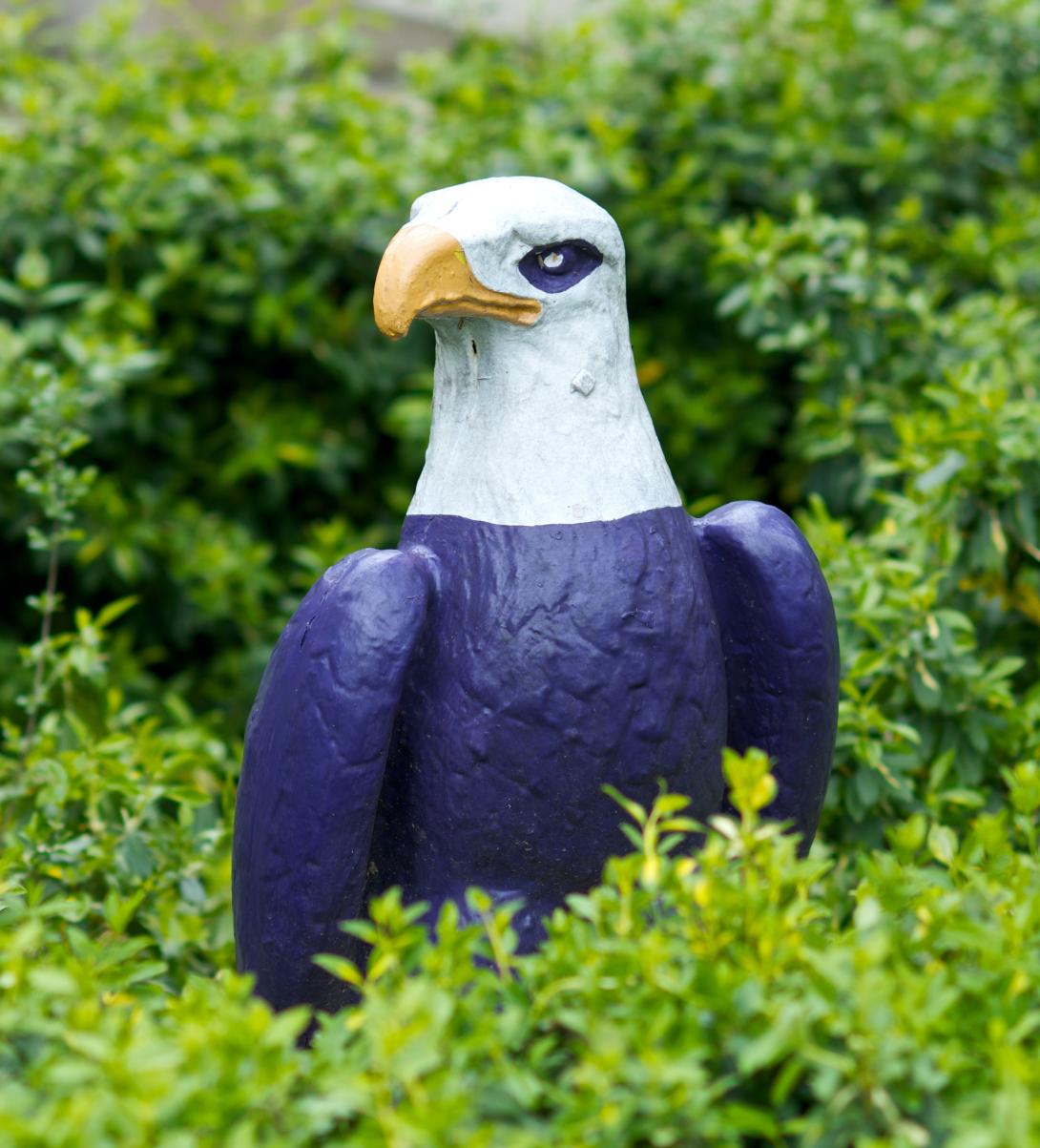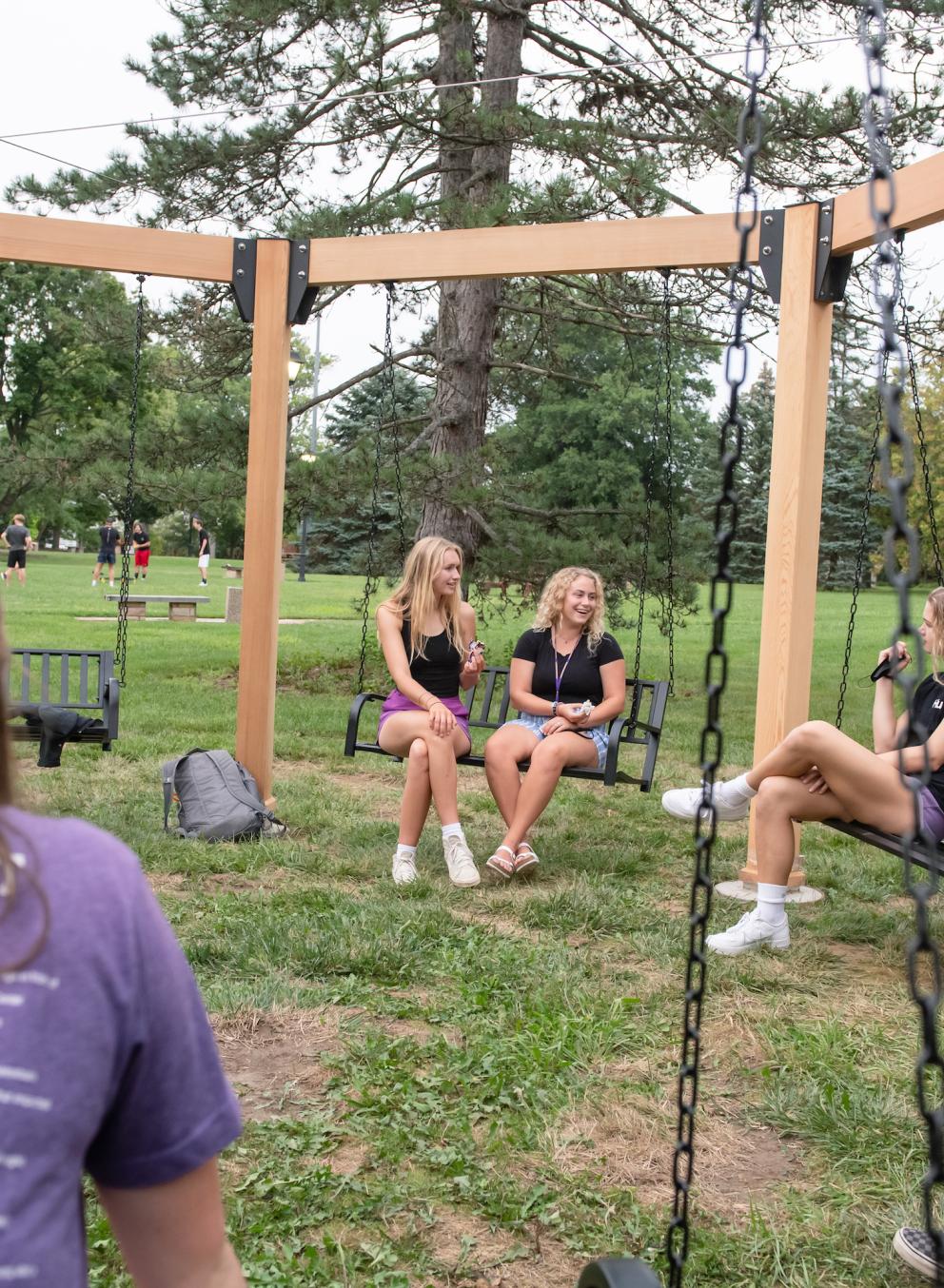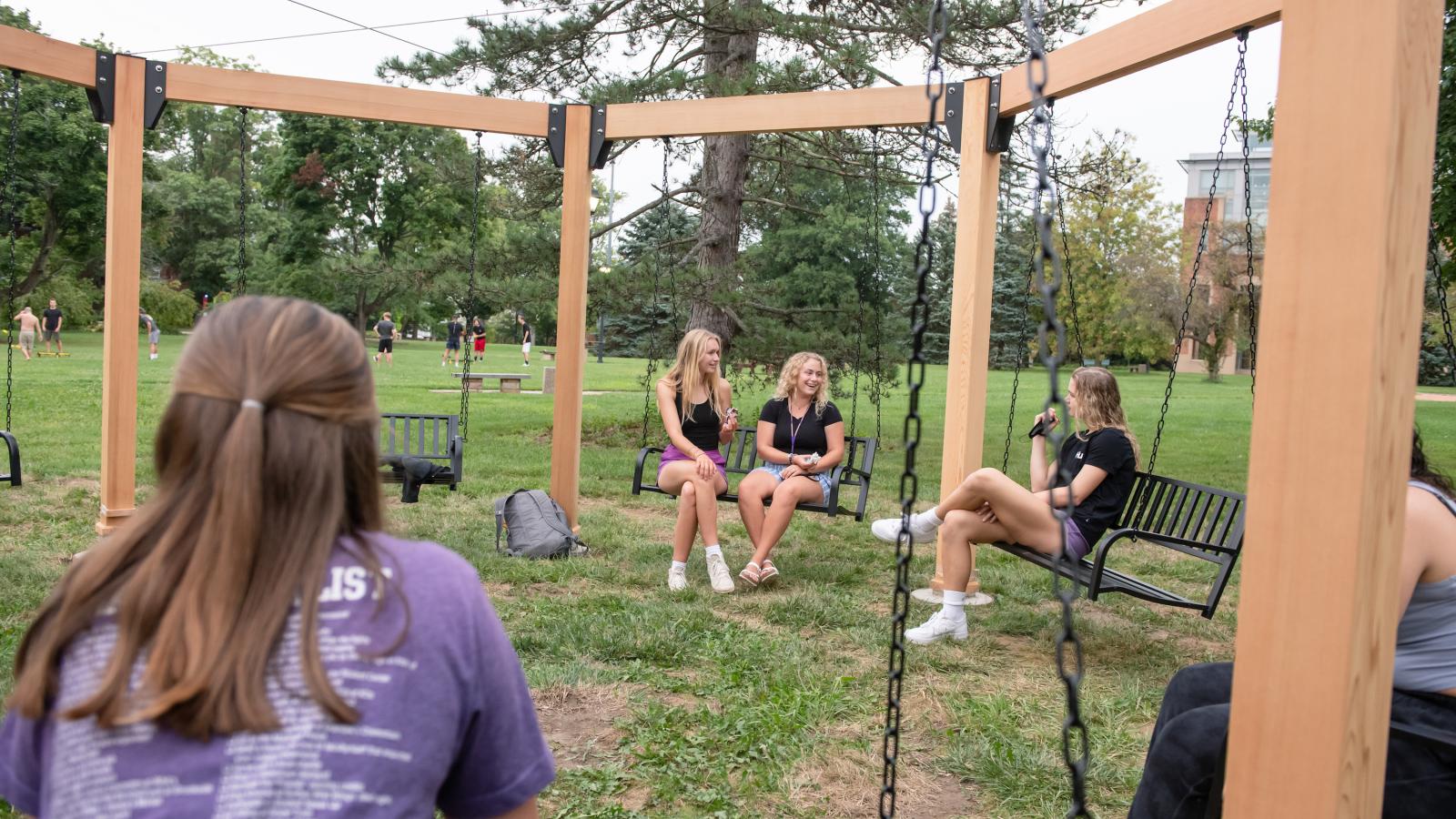Campus Life
There's so much to get involved with at AU, you're sure to find groups and activities that will enhance your campus life and improve your academic performance. Learn more about activities, athletics and support services.
Activities at AU
Residence Life
False
Student Services
The Division of Student Affairs at Ashland University is committed to promoting the academic purpose of the university while enhancing student learning outside of the classroom. Through collaboration with faculty, staff and students, we strive to build a strong community of respect and affirm the value of each individual.
Image

Image


